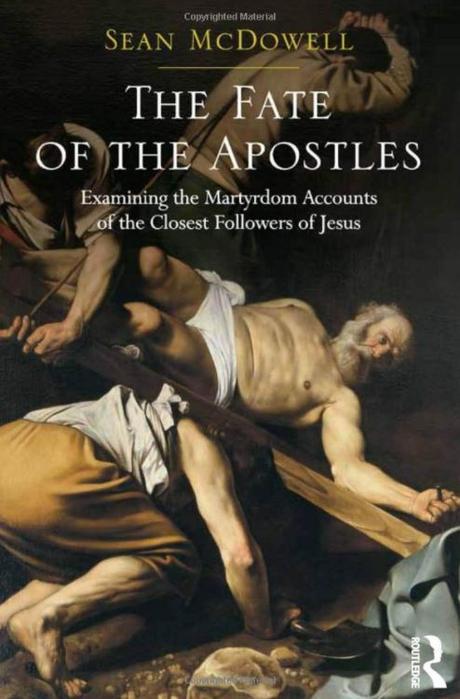
Modern Christians often point to the martyrdom of the apostles to support the New Testament claim that Jesus rose from the dead. If he didn’t, and his resurrection was a hoax or an honest mistake, why did these men go to their deaths proclaiming the significance of this event? Who would die for a lie they themselves concocted? Further, why would this group of men die for an honest mistake, when recanting this belief would lead them home to their families? Surely the truth of Jesus’ resurrection is the answer?
Professor Candida Moss is sceptical of claims that the early Church was persecuted. She dismisses Tacitus’s account of Neronian persecution, doubting the “Christians were well known and disliked enough that Nero could single them out as scapegoats.”[1] Further, later Christian martyr stories read like fictions written to emulate Greek stories; she suggests that no surviving apostolic martyrdom accounts “can be dated any earlier than the second century,”[2] so are like these later Christian martyr fictions. Worse, there’s no evidence in these accounts the Apostles were given the opportunity to recant; “this is the key element that’s missing if we’re to argue that they died for Christ.”[3] How do we know that they weren’t just executed for social offences, like disturbing the peace?[4]
McDowell strongly challenges Moss’s hermeneutic of suspicion, observing:
1 – Not all apostolic martyrdom accounts are reported in legendary documents.
Josephus reports the martyrdom of James, and Clement of Rome accounts for Peter and Paul’s deaths;[5] both are dated from the first century and lack embellishment.
2 – The twelve apostles were eyewitnesses of Christ’s resurrection appearances.
The New Testament accounts define an apostle as someone who had been with Christ from his baptism to his ascension,[6] so personally witnessed a resurrection appearance. This is consistent with ancient Greco-Roman culture, where “best evidence was believed to come from eyewitnesses, and reports further removed from the events were considered weaker.”[7]
3 – There is a historical core supporting early Christian martyrdom.
McDowell observes much of the New Testament was written to encourage suffering Christians; 1 Thessalonians lays out Christian post-mortem hope for the grieving,[8] James encourages patience in suffering, Hebrews helps Christians undergoing trials, Revelation has Christians preparing to face death for Christ’s honor, and so on.[9]
Christians refused Roman pantheon worship, and instead paid homage to Christ himself; they were often known as unpatriotic atheists.[10] Worse, it was believed their atheism “alienate[d] the goodwill of the gods and disturb[ed] the pax deorum,”[11] and so Christians were blamed and punished for natural disasters. Further, both Christian and early Roman sources specifically report Christian persecution under Emperor Nero; Moss appears to ignore the preponderance of this evidence.[12] No wonder then, the New Testament encourages suffering Christians.
McDowell has evaluated the martyrdom accounts, and concluded with high probabilities that six apostles were martyred; it’s plausible that others joined them.[13]
If Christian martyrdom is well documented, and the apostles actively preached against the Roman pantheon, wouldn’t that place them directly in the firing line? Given the historical record, martyrdom for Christ seems more likely than a natural death, or execution for disturbing the peace; in positing this, Moss is arguing from silence.
4 – Just because some martyrdom stories appear to contain legendary and apologetic material, does not mean they do not contain historical core.
If Moss is right that Christians wrote legendary accounts from the fourth century, doesn’t that mean they engaged in historical reporting before then? Further, why isn’t it reasonable to assume that the historical core persisted? McDowell challenges Moss’s general suspicion, proposing “we must examine each account individually, not…sweep them aside collectively.”[14]
What of the observation that the writers had apologetic intentions? If they had a point, then they could equally intend to make that point truthfully. If truth was unimportant, then why don’t more legendary accounts of apostolic martyrdom exist?[15]
5 – Moss is right the apostles aren’t documented as choosing not to recant, but that aligns them with other Jewish martyrs.
McDowell reminds us first these men actively ministered in an environment hostile to their preaching, and second that earlier Biblical martyrs could equally have withdrawn their beliefs to avoid death; that no account describes this option does not harm the historical likelihood of their earlier martyrdom. The same can be said of the apostles.[16]
Conclusion
Given the general evidence of first century cultural hostility to Christianity, and specific early accounts of apostolic martyrdom, a more reasonable approach would be to assess the martyrdom accounts individually, rather than sweep them all aside. The claim that many apostles were martyred does not strain reason or the historical record. Therefore, the apostolic martyrdom claim, and its evidential support of Christ’s resurrection, stands.
[1] Candida Moss, The Myth of Persecution How Early Christians Invented a Story of Martyrdom, (San Francisco: HarperOne, 2014), kindle edition, loc. 2166.
[2] Moss, loc. 2125.
[3] Moss, loc. 2139.
[4] Moss, loc. 2136.
[5] Sean McDowell, The Fate of the Apostles Examining the Martyrdom Accounts of the Closest Followers of Jesus, (New York: Routledge, 2016), 11.
[6] Acts 1:22.
[7] McDowell, 29.
[8] 1 Thessalonians 4:13-18.
[9] McDowell, 41-43, summarized.
[10] McDowell, 51.
[11] McDowell, 52.
[12] McDowell, 51.
[13] McDowell, 264.
[14] McDowell, 11.
[15] McDowell, 13.
[16] Sean McDowell, “Do the Apostles of Jesus Qualify as Martyrs?,” December 30, 2015, accessed November 07, 2017, http://seanmcdowell.org/blog/do-the-apostles-of-jesus-qualify-as-martyrs.

